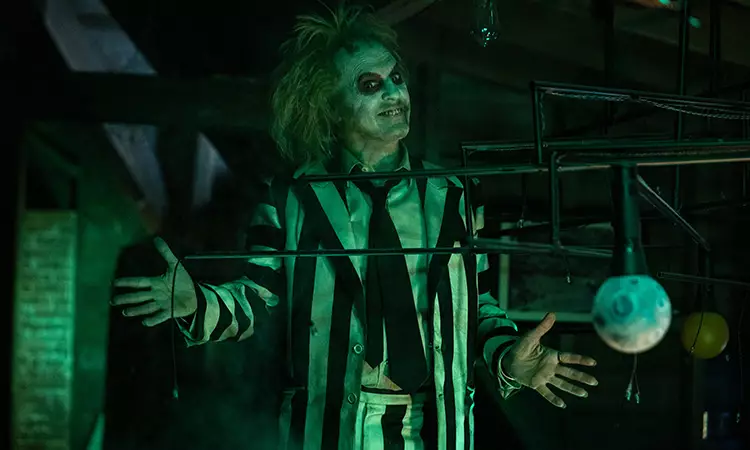In a vibrant resurgence of the cult classic, the Netflix production of “Beetlejuice Beetlejuice” invites audiences back into the quirky realm of Lydia Deetz, portrayed once again by Winona Ryder. This sequel intertwines themes of love, grief, and the supernatural while simultaneously exploring the complexities of family dynamics. Lydia, a figure of gothic allure and tortured artistry, has transformed into a widow grappling with her tumultuous past and her current role as a mother to teenage Astrid, played by Jenna Ortega. The film delves into Lydia’s struggles, set against the backdrop of a paranormal television show led by her hilariously sleazy boyfriend, brought to life by the comedic talents of Justin Theroux.
After the passing of her father, Lydia’s return to New England with her stepmother, Delia (Catherine O’Hara), marks a poignant exploration of haunting memories and unresolved issues. The decision to declutter their home serves as a metaphor for the emotional baggage both characters carry. The introduction of Betelgeuse (Michael Keaton) adds an energetic layer to the plot; he finds himself entangled in the chaos created by his ex-wife, portrayed by Monica Bellucci. Bellucci’s character plays a role akin to a vengeful spirit, bringing with her a mixture of dark comedic elements and genuine menace. Their interactions propel the narrative into both lighthearted and eerie territories.
Director Tim Burton’s signature visual stylings and imaginative depiction of the afterlife elevate the movie, even when the screenplay appears cluttered with an abundance of plot points and whimsical leads. The film’s pacing occasionally falters under the weight of its numerous storylines; however, the magnetic performances of the ensemble cast allow much of this chaos to glimmer. O’Hara’s performance is especially noteworthy, as she embraces the eccentricity of her character with flair. Ryder’s unique portrayal melds vulnerability and strength, while Ortega’s deadpan humor brings a refreshing depth to the narrative. Collectively, these characters form a delightful bond, peppered with clever wit and engaging one-liners that exemplify the film’s comedic core.
The essence of familial love amidst the nonsensical journey is reminiscent of the original 1988 film’s heart, as co-writer Larry Wilson envisioned. Through the chaotic interactions and the visual feast presented, “Beetlejuice Beetlejuice” artfully re-establishes the importance of connection, even in the face of bizarre circumstances. As musical numbers embellish the storyline, interspersed with nods to classic horror and energetic chases, viewers are reminded that the darkness of existence contains an undercurrent of sweetness. The film, while zany and unpredictable, ultimately emphasizes the strength found in family ties, making it not just a visual spectacle but a heartfelt reflection of enduring bonds.
Through its motley cast and whimsical storyline, “Beetlejuice Beetlejuice” solidifies its place within the annals of modern cinematic experiences, where zany chaos and emotional depth harmoniously coexist.

